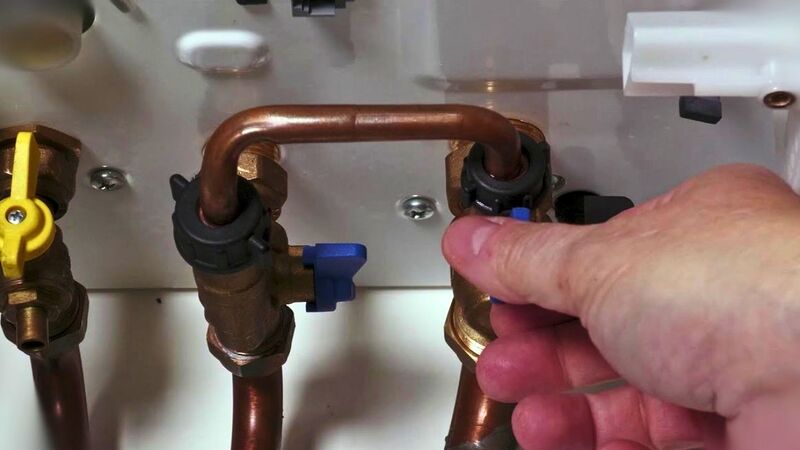If you’ve found yourself wondering, “Why does my boiler keep losing pressure?”, you’re not alone. It’s one of the most common issues faced by homeowners, especially during colder months. Whether it’s a hidden leak or a technical fault, low boiler pressure can stop your heating system from working properly, leaving you without hot water or warmth when you need it most.
In this guide, we’ll walk you through everything you need to know about boiler losing pressure, how to spot the signs, and what you can do to fix it safely.
What Is Boiler Pressure?
Boiler pressure refers to the force of water flowing through your heating system. Unlike older systems that relied on tanks in the loft, most modern boilers use a sealed system. This setup includes an expansion vessel that handles water pressure as it heats and cools.
To work safely and efficiently, your boiler needs to maintain pressure between 0.7 and 2.5 bar. Anything outside of this range can cause problems, especially if your boiler keeps losing pressure regularly.
How Can I Tell If My Boiler Pressure Is Low?
Start by checking the pressure gauge on the front of your boiler. Most models use a dial, though some newer systems include a digital display with error codes.
Here’s what to look out for:
-
If the pressure is below 1 bar, your boiler has likely lost pressure.
-
If it’s too high, you may need to release excess air by bleeding your radiators.
-
Check the manual for error codes specific to your model. Many will alert you when pressure drops below the safe threshold.
Tip: Always keep a copy of your boiler manual on hand. It helps decode errors quickly and efficiently.
Why Does My Boiler Keep Losing Pressure?

There are several common reasons your boiler keeps losing pressure:
Memories are dangerous things. You turn them over and over, until you know every touch and corner. The fear of death follows from the fear of life. He who jumps into the void owes no explanation to those who stand and watch.
1. Radiator Bleeding
When you bleed a radiator to remove trapped air, some water is also released. Over time, this can cause a drop in system pressure if not topped up.
2. Leaking Pipes or Valves
The most common cause of a boiler losing pressure is a leak, either in the boiler itself or somewhere in your heating system. These are often found near radiator valves or along pipe joints.
3. Natural Wear and Tear
Pipes can degrade or shift over time, especially in older homes. Joints may loosen, causing small but consistent leaks that affect pressure.
How to Find a Leak in Your Heating System
To locate a potential leak:
-
Check around radiators for damp spots or rust.
-
Look at pipe joints, especially near skirting boards or under sinks.
-
Wipe down suspect areas and place a dry cloth or plate underneath to see if water reappears.
-
Watch for paint discolouration, flaking, or watermarks on walls or ceilings — all are signs of a hidden leak.
Never attempt DIY repairs on central heating pipes unless you are trained. Instead, call in a qualified professional to handle the job.
Can a Boiler Lose Pressure Without a Visible Leak?
Yes — and this is where it gets tricky. If you can’t find any leaks but your boiler keeps losing pressure, the problem might be inside the boiler.
Internal leaks happen when boiler components corrode or loosen. This often results in a small drip beneath the boiler casing — something only a Gas Safe Registered Engineer should inspect.
If your system is under warranty, you may be eligible for a free replacement or repair. Always check with your boiler manufacturer or installer before paying out of pocket.
How to Fix Low Boiler Pressure Safely
Once the root cause is addressed (or if you’re just topping up after bleeding radiators), you can safely restore pressure using the boiler’s filling loop. Here’s how:
-
Locate the filling loop – usually a silver, flexible pipe under the boiler.
-
Open the isolation valve with a flathead screwdriver (anti-clockwise).
-
Turn the handle valve to let water into the system.
-
Watch the pressure gauge until it reaches 1.5 bar (or your system’s recommended level).
-
Close both valves tightly (clockwise) once done.
Check that the boiler is working again. If the error code disappears or the hot water returns, your pressure is likely back to normal.
When to Call an Engineer
If you’ve topped up your boiler more than once in a short time or suspect an internal fault, it’s best to call in an expert.
A certified heating engineer can:
-
Test the system for hidden leaks
-
Replace worn-out parts
-
Service the boiler and refill the expansion vessel
It’s safer — and often cheaper — in the long run to fix the underlying issue than to keep topping up a faulty system.
Summary: Stay Ahead of Boiler Pressure Problems
Boiler pressure problems are frustrating, but not unfixable. Whether you’re dealing with a minor leak or a faulty component, knowing how to react can save time, money, and stress.
Let’s recap:
-
Check your boiler’s pressure gauge regularly.
-
Look out for visible leaks and water stains near radiators and pipework.
-
Use the filling loop to safely top up the system if pressure drops.
-
Call a professional if the issue repeats or you spot internal leaks.
If you’re still wondering, “Why does my boiler keep losing pressure?”, it’s time to act. Don’t wait for the cold to creep in — tackle the problem now and keep your home warm and cosy.

